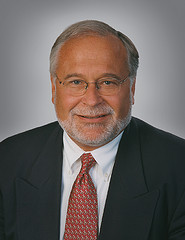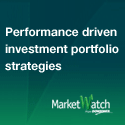Biography: Tristram S. Lett is the Chief Investment Officer at Integra Capital Management. Established in 1987, Integra Capital Management has two core businesses: the management of institutional assets for Canadian pension and endowment funds and foundations; and, the representation in Canada of high quality foreign asset managers who use our registrations and distribution channels to build a book of Canadian domiciled assets.
Rarely do we get to ask questions of those who research hedge fund strategies and hedge fund managers on a professional level. Mr. Lett, in his role as Chief Investment Officer of Integra Capital Management spends a great portion of his time allocating capital on behalf of pension, endowment funds and foundations into hedge funds. Given his extensive experience in the area of alternative investments, we are glad to present the following interview with Mr. Lett.
Q: Mr. Lett, what do you look for when selecting funds and hedge fund managers to invest in or recommend?
A: The main things you look for are quality, comprehensibility, repeatable and scalable investment processes within a framework of operational risk control. Having said that, the important exercise is to create a portfolio of firms which work well together, not just a bunch of superstars. This means that after the first cut, one is paying attention to correlation and a number of key risk measures.
Q: How do you evaluate the funds and the fund managers?
A: The working assumption is that you are looking at a set of managers that have passed a risk/return screen. After that concentrate on the operational questions first because operational failures are the largest source of underperformance. Who are the service providers and are they independent from the fund manager. This includes prime brokerage, administration, custody, legal, audit, pricing and portfolio valuation. Those that pass those tests learn and understand their investment process, its size and continuity constraints and above all, their risk management practices.
If all this is satisfactory and one invests, it is important that you re-evaluate all these questions at least once a year.
Q: What red flags do you look for in deciding to withdraw your investments in a fund?
A: Critical ones are change or changes in key personnel, style drift, operational issues and if you can get the information, excessive leverage.
Q: With the recent announcement of 2 prominent hedge fund managers (Stanley Druckenmiller and Paolo Pellegrini) exiting the hedge fund industry as a result of not meeting expectations, be they personal (in the case of Druckenmiller) or those belonging to investors (in the case of Pellegrini), Mr. Lett, do you think the reasons cited by Mr. Druckenmiller & Mr. Pellegrini may be more prevalent than one may think (in terms of others hedge funds not meeting their highwater marks and maybe closing shop)?
A: This is a complicated question. The investing world has changed profoundly since the credit crisis making productive investing a real challenge. After a long and very successful career, Stanley has decided to move on to other things. Paolo probably can’t find the big play that will enrich his clients and him at this time. Reasons are varied, but it’s not likely all managers will be so forthright. During this settling out period, managers will face these challenges as best they can.
Q: Mr. Lett, US equity mutual funds have been hit by 13 straight weeks of outflows totalling more than $50 billion. While these maybe retail statistics, have you been noticing a similar trend among the hedge funds you monitor/track? Are there any other trends that you are noticing in terms of money flows or investment strategy in the hedge funds you monitor/invest in?
A: This is well documented and was predicted long ago by anyone following both demographics and pension funding. The real question is where is the money going to? Quick answer-yield bearing assets. The reason it has become very noticeable is because of the shock created by the credit crisis finally making investors take stock of risk and liabilities. This will not be going away for a long time.
Q: Another interesting observation that has been cited by the media, especially in the United States, is that an increasing number of large hedge funds are reporting (via 13F’s) that they are invested in large capitalization equities like Apple, Pfizer, Exxon Mobil etc. Given the large cap nature and familiarity of these equities, one might wonder why these hedge fund are being paid the enormous fees that they demand, when it seems highly unlikely that they are generating any ‘alpha’ from Apple, Pfizer and Exxon Mobil as opposed to an ETF mirroring an index? What are your thoughts on this assertion, Mr. Lett?
A: That’s easy - next week they could be long small cap growth equities and short large caps. They are being paid to make the reallocation decisions, not to index to large cap equities.
Q: Any final nuggets of wisdom?
A: Diversification is still the best risk-reducing strategy known.
Thank You, Mr. Lett!
{ 0 comments }





